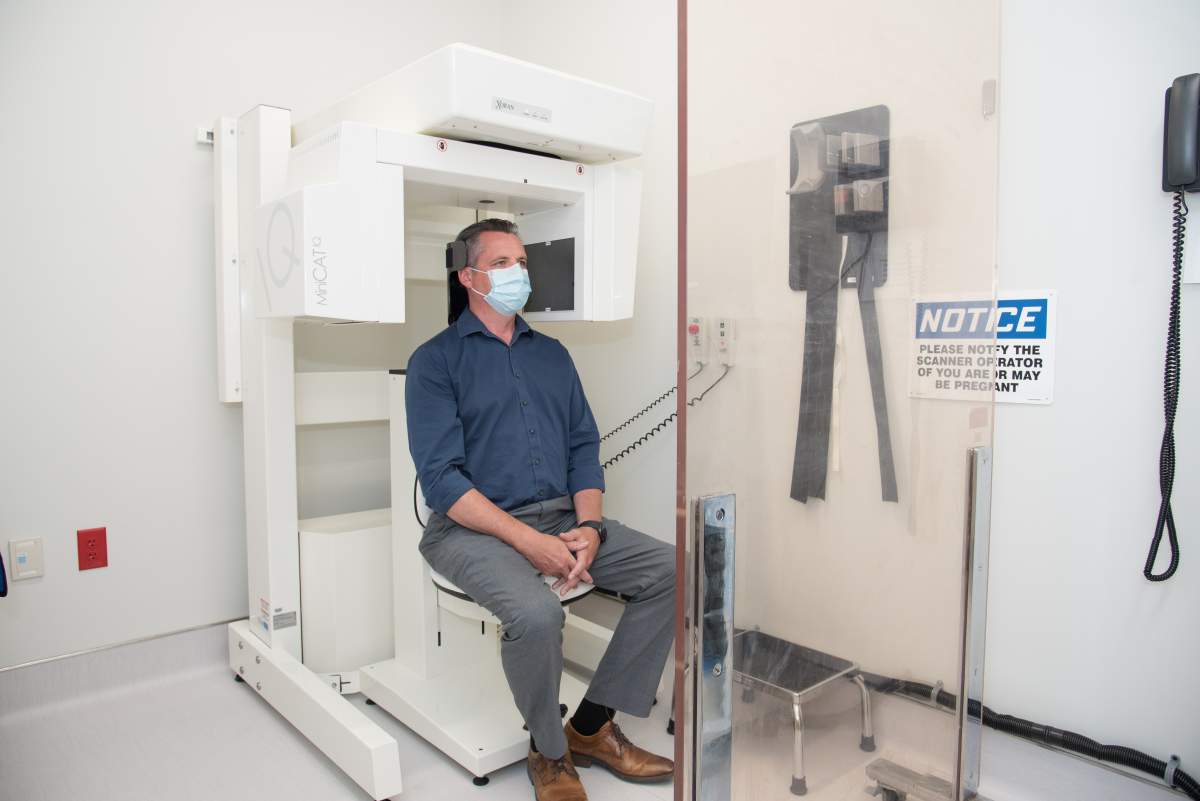Officials with London Health Sciences Centre are highlighting the recent arrival of a new medical imaging device they say has drastically cut down the amount of time it takes for otology patients to receive their diagnosis.

Previously, the organization says otology patients would have to wait up to two months to get a normal CT scan as a result of lengthy wait times for the critical diagnostic tool.
With the new device, however, called a MiniCAT or cone-beam CT unit, patients can now receive their scan in roughly 20 minutes on the same day as their initial appointment.
The shortened diagnostic time means LHSC’s otology patients, many of whom come from outside of the city, can now see their otologist or sinus surgeon and get scanned on the same day, saving them money that would have been spent on gas and parking on a subsequent return trip.
“It allows this subgroup of patients who … were typically at the back of the line in the past to now have something dedicated specifically for them,” said Dr. Sachin Pandey, head of diagnostic and interventional neuroradiology at Western University’s Schulich School of Medicine and Dentistry.
The MiniCAT, which went into operation at LHSC in April, is similar to a traditional full-body CT scanner, but instead targets specific areas of a patient’s head and neck. The result is a reduced diagnostic time, a significant decrease in radiation exposure and better quality images.

Get weekly health news
“When I say much less radiation, I’m talking on the order of maybe one per cent as much radiation as the patient would have otherwise had to image that part of their skull or their ears,” Pandey said.
Not only does it make things safer for patients and for health-care staff, but it also means the machine doesn’t require a specialized room with lead lining, he said.
“It makes the scanners a lot more easy to place in a hospital or in a clinic. Because the scanner is so easy to locate, we didn’t need massive construction costs, we were able to fit it into an existing room.”
LHSC says it’s the first hospital in the country to offer otology patients diagnostic scans with the MiniCAT, a device the organization acquired with the help of a generous gift from former otology patient Tom Allison.
“I know first-hand the wait times to have a CT done, and that wait feels unbearable. My only hope for the gift was to make a difference for future patients needing treatment,” Allison said in a statement released by LHSC.
In addition to the previously mentioned benefits, Pandey says the MiniCAT will allow patients to receive a CT scan immediately before or after their surgery, something that would have taken much longer as a result of wait times.
In the event that a patient’s situation has changed since the procedure was booked, it could mean avoiding a potentially unnecessary surgery. As well, medical staff can now determine in a fraction of the time whether a procedure, such as a cochlear implant surgery, went without a hitch.
According to Pandey, the MiniCAT performs scans on approximately four to five patients every day — patients who otherwise would have been waiting in a two-month queue.
Although current cone-beam CT technology is designed for diagnostics involving the sinuses and temporal bones, meaning it can’t be used to scan the brain, it’s possible that could change in the future.
“I should say, part of getting this type of technology at an academic health sciences centre is that we hope to use it for our patients, yes, but we also hope to use it … for clinical things, for research purposes, so that we can be part of maybe a second or third generation scanner that would be tweaked or modified” to allow for such diagnostics, Pandey said.












Comments
Want to discuss? Please read our Commenting Policy first.